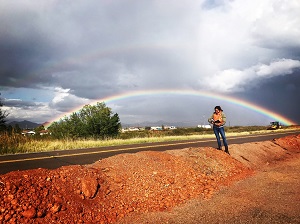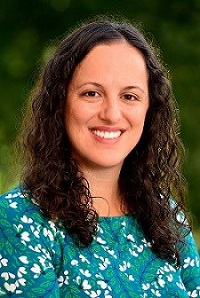Science Leadership

NIEHS Superfund Research Program (SRP) staff and grantees are committed to advancing research by presenting innovative findings, tools, and technologies to stakeholders in academia, government, and communities.
SRP Health Scientist Administrator Danielle Carlin, Ph.D., hosted a Summer Scientific Art/Photo Competition for SRP trainees. This was a fun opportunity for graduate students and postdoctoral fellows from SRP Center across the U.S. to share any amazing images they may have captured during laboratory or field experiments, or inspiring photos captured while staying safe this past year.
SRP-funded research was highlighted at the Federal Remediation Technologies Roundtable (FRTR) meetings , held May 19 and 26. SRP Director, Bill Suk, Ph.D., M.P.H., and SRP Health Scientist Administrator, Heather Henry, Ph.D., participated in the meetings. Henry, who is a member of the FRTR steering committee, was one of the lead organizers.

SRP hosted the Risk Communication Strategies to Reduce Exposures and Improve Health Virtual Workshop , June 21 - 22, which drew more than 200 participants. NIEHS grantees, partners, and colleagues came together to discuss how they have engaged with local groups and communicated potential health risks to reduce exposures and improve health. The workshop covered topics such as engaging communities and promoting equity in risk communication, designing health messages for specific audiences and evaluating their impact, exploring the social context of risk perception, and translating research into communication tools. SRP Health Specialist Sara Amolegbe, M.S.P.H., was the lead organizer.
Henry participated in the "speed mentoring" session at the University of California, Davis National Innovators Forum Entrepreneurship Academy , July 26 - 30, sharing information about small business innovative research grant programs to a diverse group of potential entrepreneurs.
SRP Health Scientists Administrator, Michelle Heacock, Ph.D., presented at a U.S. Environmental Protection Agency meeting titled "How to Make Your Little Data Big by Being FAIR." During the webinar, held September 2, Heacock explained how making data Findable, Accessible, Interoperable and Reusable can reveal new insight in research.
SRP-funded researchers from all over the country tuned in for the Human Health Exposure Analysis Resource (HHEAR) June Virtual Grantee Meeting. The event was hosted by the HHEAR Coordinating Center and the NIEHS Exposure Science and the Exposome Webinar Series. HHEAR provides NIH-funded researchers access to centralized, high-quality exposure assessment services.
To kick-start the and International Society of Exposure Science (ISES)annual meetings, NIEHS hosted a pre-conference workshop titled "Demystifying the NIEHS Grant Process to Attract and Retain Diverse Talent for the Environmental Health Sciences," July 30. The workshop featured former SRP trainees Andres Cardenas, Ph.D., and Tiffany Sanchez, Ph.D., in a panel on strategies to address challenges that minorities experience in science. Henry also led a panel discussion on best practices to recruit and retain diverse candidates.
ISES also hosted a Sensor & Technology Fair, August 31 and September 1. Several SRP grantees were in attendance and Henry and Amolegbe were part of the planning committee.
SRP Health Specialist Brittany Trottier, M.P.H., and Henry were involved in the planning committee for the NIEHS Diverse Researcher's Integrated Virtual Engagement Network (DRIVEN) meeting.

University of Kentucky SRP Center researcher and Community Engagement Core (CEC) leader Dawn Brewer, Ph.D., was featured in an NIEHS podcast, Eating a Healthy Diet to Protect Against Pollution . Brewer discussed how a healthy diet can protect against the harmful effects of pollution. She also described an intervention called BerryCare, which the CEC launched with community partners to encourage Kentucky residents to eat more fruits and vegetables.
Researchers led by Mark Brusseau, Ph.D., at the University of Arizona SRP-Center study how hazardous materials move in the environment . By combining mathematical models with laboratory and field studies, the team can better understand factors that cause contaminant cleanup to stall and identify cost-effective solutions to better protect human health.
to Top



